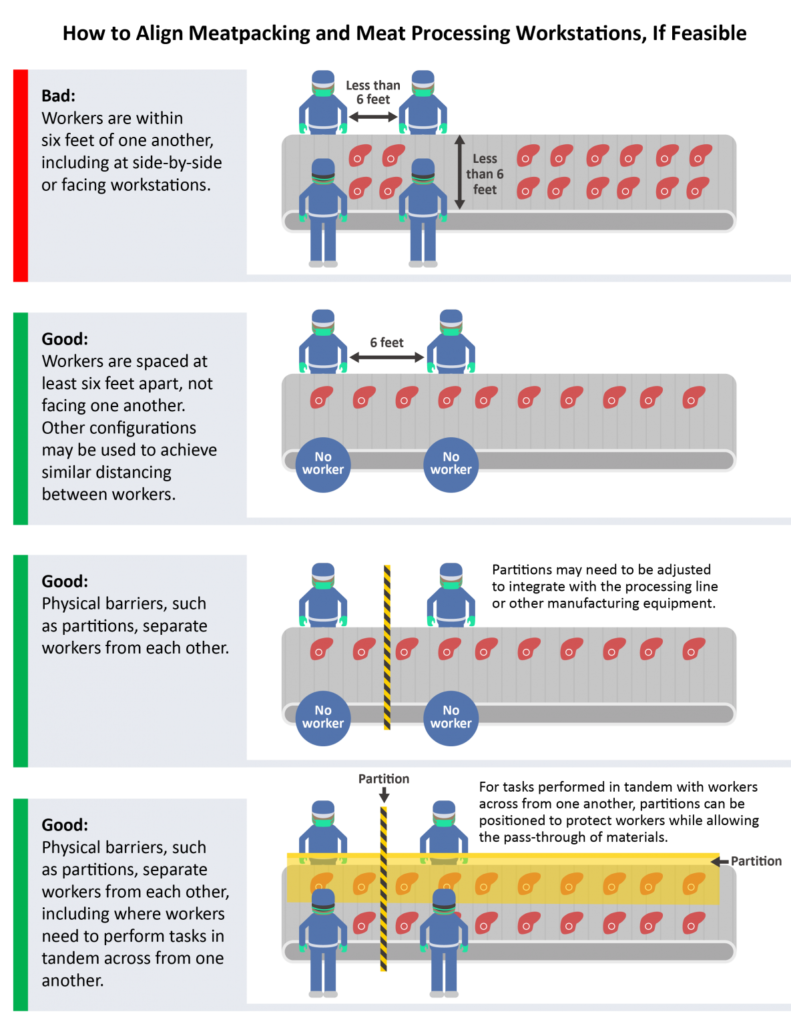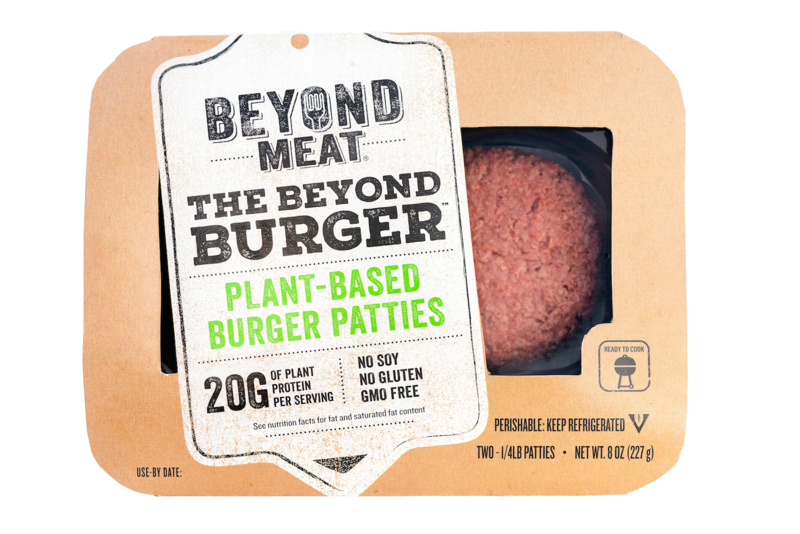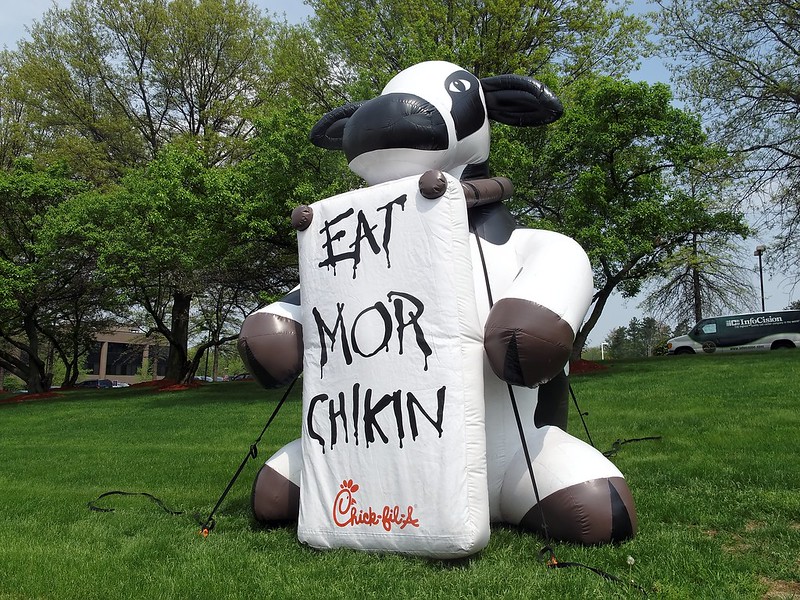As COVID-19 emerged as a major health crisis in the United States, meatpacking plants have become hotbeds for the disease. The sheer number of infected workers necessitated the closure of over two dozen plants out of about 800 federally inspected slaughterhouses, as cases of COVID-19 reached over 27,000 and deaths totaled 86 by June 22nd. Meat production is not distributed equally among these 800 processing plants. Closure of a select few can induce effects comparable to shutting down an airport hub. In late April, consumer meat shortages prompted an executive order invoking the Defense Production Act to declare the meat processing industry and its workers essential. However, the order contained no policy changes or avenues to enforce the reopening of closed meat processing plants, but was instead intended to “solve any liability problems” on behalf of corporations. The pandemic has revealed to the public decades of dire issues within the meatpacking and poultry processing industries. Changes in regulation throughout the past century have amplified the vulnerability of these industries, specifically surrounding workplace safety and supply chain disruptions.

https://www.cdc.gov/coronavirus/2019-ncov/images/community/meat-processing-workstations-large.png
The capitalist conditions threatening the health of meatpacking workers and the safety of meat products were clearly documented in Upton Sinclair’s novel The Jungle in 1906. The immediate public reception of Sinclair’s exposé largely overlooked worker exploitation in favor of imposing more stringent health regulations on consumer meat products in the form of the Federal Meat Inspection Act (FMIA). In the years between implementation of the FMIA and the 1970’s, labor conditions improved as a result of meat packer unionization and federal antitrust legislation, which ensured that the four largest beef producers controlled only 20% of the market. The rise of fast food in the 1970’s prompted large-scale production of uniform meat products, which in turn facilitated the consolidation of meat producers, leading to well-known industry titans such as Tyson. Today, the four companies Tyson Foods, Cargill Meat Solutions, JBS USA, and National Beef control a staggering 80% of the beef industry.
During the 1990’s, Tyson and other corporations moved their operations to rural America and hired non-English-speaking undocumented immigrants to combat worker unionization and increase profits. In the early 2000’s, meatpacking companies slashed wages by 50%, increased line speeds, and lobbied for reduced government oversight. Now, workers make about 10,000 cuts per shift, risking repetitive stress injuries for a job that no longer provides a living wage. These harsh working conditions also involve long and grueling shifts without breaks, punitive measures or layoffs for reporting injuries, and exposure to antimicrobial chemicals, fecal matter, and E. coli. Consolidation of the meatpacking industry and dismantling of regulations over the past few decades have clearly resulted in poor worker safety. The COVID-19 pandemic has exacerbated unsafe conditions, as the lowest number of health and safety inspectors are currently working in the 50 years since the inception of OSHA. Further, recent raids of poultry plants conducted by the U.S. Immigration and Customs Enforcement (ICE) have attempted to shift blame for the exploitative hiring of cheap immigrant and minority labor by criminalizing this population of desperate and vulnerable workers.
Beyond the human rights violations of meatpacking workers exposed anew by the COVID-19 pandemic, the present crisis has led to the gruesome killing of animals even before they enter the processing stage of the meat supply chain. Due to plant closures, the farmers raising cattle, pigs, and chickens for human consumption have been forced to ‘depopulate’, a euphemism for cull, their animals as the capacity for meat processing has decreased. By mid-May, about 10,000,000 chickens were killed by suffocation with water-based foams due to supply chain disruptions, and the same number of pigs are due to be slaughtered by September through suffocation with CO2, anaesthetic overdose, and shooting. The animal welfare concerns that stem from these types of slaughter are also coupled with the extreme anguish of farmers, who are only able to send about 1% of their pigs to local butchers because meatpacking centralization has wiped out smaller state-owned processing operations.

If the health and safety conditions of hundreds of thousands of meatpacking laborers and farmers as well as the senseless deaths of millions of animals are upsetting to you, you are not alone. Interviewed by the New York Times, William Thomas, a 19-year-old who purchased beef and chicken during weekly grocery shopping trips but switched to plant-based alternatives in April, said, “I’d always been trying to block out a lot of what was going on behind the scenes of the meat industry, but I can’t ignore it forever… With the pandemic around, a lot of the industries, you know, not taking the proper precautions to make sure everyone is safe, I feel like that would probably also go in toward the products.” In broad agreement with this sentiment, consumer-driven demand for meat analogues has resulted in both record sales by the plant-based company Beyond Meat in the first quarter of 2020 as well as an increase in jobs and wages at Impossible Foods factories. While vegan meat companies, such as No Evil Foods, have not necessarily treated their workers justly during the COVID-19 pandemic, social distancing is nevertheless more feasible at plant-based operations, where workers have contracted COVID-19 at a much lower rate than in traditional meatpacking plants.
In an interesting convergence between animal-derived meat and plant-based substitutes, Tyson Foods had invested in Beyond Meat’s stock before divesting and announcing its own line of vegan meat alternatives due to “changing consumer demands.” As consumers stop aiding a meat production system that oppresses its workers, slaughters over 151 million animals a day in the U.S. alone, and contributes significantly to climate change, beneficial outcomes will follow. According to climate change models by Project Drawdown, a nonprofit consisting of scholars, scientists, entrepreneurs, and advocates, “eating a plant-based diet is ‘the most important contribution every individual can make to reversing global warming.’” While this lifestyle change may sound daunting to some, it is important to recognize that psychological factors and social constructs are powerful forces that prevent humans from reconciling their ethical, social, and environmental values with meat consumption, a phenomenon known as the “meat paradox.” Marketing campaigns dissociate the meatpacking process from the final product on a dinner plate by changing the language from “pigs” to “pork” and using anthropomorphized cartoons of cows to obscure the inhumane origins of chicken sandwiches. Recognizing that these psychological forces are at play can ultimately aim to resolve the cognitive dissonance that accompanies the meat paradox.

https://www.flickr.com/photos/marktee/5717447010
While the COVID-19 crisis has propelled decades-old problems within the meatpacking industry to the front page of national and local news outlets, the instability of the meat supply chain has emerged as a threat to food security in 2020 and will require dramatic, systemic changes to address. Starting today, individuals can educate themselves on their participation in this industry and examine which lifestyle changes they can implement to better reflect their personal values.
Peer edited by Rachel Ernstoff and Eliza Thulson
Well written! Thanks for this. Melody.